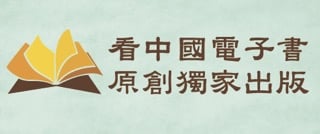泰瑞.玛什(Dr. Terri Marsh)一名犹太裔美国律师,曾是一名出色的哲学教授,在获得博士学位后,她先后在三所著名大学任教。她发表的著作被称为学术界的尖端。2002年10月代表法轮功学员向美国伊利诺义州北区法院控告江泽民及610办公室。
四位具有良好声誉的中华民国台湾公民,向香港高等法院提告港府入境处处长系纯因他们的信仰为由而拒绝他们入境。这四位台湾原告都是法轮功原则的信仰者,其中一位是知名的人权律师,也是“人权法律协会”亚洲执行长。
他们的此项经历并不特殊。前中共高阶主管610业务的官员在美国国会的证词中明白指出,中共当局早将其迫害和威胁法轮功学员,并且限制他们行使抗议中国政府打压政策的权利延伸到海外的法轮功学员身上。依据陈用林先生所证,对海外法轮功学员的迫害是中共在海外的重要和主要项目,其中包括搜集海外法轮功学员及其在当地国活动的消息,并致力于阻止法轮功团体对于中国政府的抗议活动。为了达此目地,中共经由610办公室和其在全球所布下的特务网,制作了中央和地方的“黑名单”,这样的名单包括其所获知在中国境内或境外习炼法轮功的人的名字。
中共当局制作法轮功的名册,并将名册广传到外国政府,用以阻止法轮功学员进入这些国家境内去行使抗议中国政府镇压法轮功的权利,这些名单消息的搜集和遭到阻止法轮功学员抗议都与本案原告所获之待遇紧紧相关。
中国政府将这样的名册给了香港政府并且要求阻止法轮功学员入境的事实不仅可从陈用林先生的证词中获知,亦可从许许多多欲到香港参加抗议迫害法轮功活动,却遭拒绝入境的法轮功学员的证词中可知。
尽管原告所提起的法律案强劲有力,香港高等法院也有行使司法权力来审查政府相关部门有无肆意滥用裁量权的义务,高等法院却仍以令人高度值得质疑的见解驳回了原告的声请,特别令人有问题的是:法院并未查明任何关于“黑名单”内容、目地及其执行的任何资讯。
举例说明,法院在其判决理由中再三强调“如果行政部门拒绝原告入境只是基于他们的信仰,那他将至少被认为是不理性的决行和越权(判决书第七二段)。为了支持此项立场,法院不仅引用香港基本法规定,还有许多判例,其中包括引用香港上诉法院Ho Ming Sai and Others v. Director of Immigration的重要相关见解:‘法院应该准备介入所有入境处处长滥用权力的事件,如果其非法滥用行政权’。
在判决书的第六十七段,法官承认入境处处长必须在不同的法律规定下行使其裁量权以达成其行政目的,但是如果该裁量权的行使,既达不成目地并且超过其裁量权行使之限制,法院应该介入。
尽管承认入境处处长是否有“越权”或是在其广泛裁量权的限制范围内行使职权,法院却并未独立审理入境处处长拒绝原告入境香港的决定,未查明其在本案事争事实中所行使的裁量权是否为“越权”或是“有悖常理”以便裁决被告是否以宗教为由和基础来拒绝四名原告入境。
关于此项症点,判决理由的第九十五段中提到“在之后的听审中,我被告知所有与入境相官的监督名单在三个星期左右就被销毁了,在差不多的期间内,其他关于拒绝四位原告入境理由的政府档案也被销毁了…政府机关收悉之情治消息,消息来源不能揭露,其性质也未详细说明”。
尽管原告持有有效的多次入境许可,法院竟可在不知名单的来源,不知其目的,甚至也不知资料销毁的执行,便在判决中下了结论:入境处处长没有义务透露关于其拒绝原告入境是否滥权的相关事实和基础。
撇开法院不给予所有外国访客程序公平及正当程序的权利,违反了原告在法律下应获得的公平待遇不谈;撇开法院不同意欧洲人权法庭之禁止盟国拒绝外国人入境实施人权公约权利的法律意旨不谈;撇开法院不尊重英国判例法中前例有拘束力之原则,而引用早已失效的有关拒绝给予某些外国人入境权利的保护不谈;香港法院未能查明行政机关在外观上因宗教信仰理由所而做成的行政行为之真正理由,这样的判决应该遭到立即的撤销及废除。
A Matter of Principle
Four highly esteemed and reputable citizens of the Republic of China (Taiwan) have filed legal proceedings in the High Court of the Hong Kong Special Administrative Region Court (“High Court”) against the defendant Director of Immigration for denying them entry into Hong Kong based solely on their religious or spiritual belief. All four Taiwanese petitioners (“applicants”) believe in the tenets and principles of the Falun Gong religion. One of the four is a well known human rights attorney and the Director of the Asia Branch of the Human Rights Law Foundation.
Their experience is not unusual. Indeed, based upon the US congressional testimony of a former high ranking 610 official (available at http://commdocs.house.gov/committees/intlrel/hfa22579.000/hfa22579_0.HTM), it is clear that the Chinese authorities have extended their effort to persecute and intimidate Falun Gong practitioners, and to restrict their right to protest against Chinese Government policies of repression and torture, to practitioners outside of China. According to this same source, Mr. Chen Yong Lin, the campaign of persecution against the Falun Gong practitioners who reside outside of China was made a major priority, and includes a component of extending the campaign overseas through the collection of information about Falun Gong practitioners and their activities in other countries, and efforts to prevent protest activities against the Government of China. To this end the Chinese authorities have created central and local “blacklists” with the names of persons known to practice Falun Gong inside or outside of China, with the help of the Office 610 and a net work of spies who work for them around the globe.
It is this information collection and effort to prevent protests that ties in with the treatment of the four applicants in this case, through the Government of China’s compilation of a list of Falun Gong practitioners that has been circulated to all governments to prevent travel of practitioners to any country where they intend to exercise their right to protest the repressive policies of the Chinese authorities through the list.
That this list was given to the Government of HK, with a formal request from the Government of China to block entry of those Falun Gong practitioners on the list is clear not only from Mr. Chen Yong Lin’s testimony, but also from the testimony of dozens of Falun Gong practitioners denied entry into Hong Kong to attend Falun Gong related events, including protests against the campaign of persecution against Falun Gong in China.
Notwithstanding the strength of the legal case filed by the applicants and the obligation of the High Court to exercise its judicial powers to check the unbridled abuse of discretion of related executive branches of government, the High Court dismissed the application for judicial review based upon highly questionable grounds. Especially troubling is the Court’s failure to ascertain any information whatsoever about the source, purpose, and implementation of the “blacklist.”
For example, the Court indicates again and again in its decision that “if the Executive Branch did refuse the applicants entry based solely on their religious belief, he would have at the very least have acted perversely and ultra vires.” See, Opinion at ¶ 72. In support of this proposition, the Court cites not only provisions of the Basic Law in Hong Kong, but also ample legal precedent that include a highly relevant excerpt from the Hong Kong Court of Appeal in Ho Ming Sai and Others v. Director of Immigration [1994] 1 HKLR 21:
“… Certainly the court would be prepared to intervene in the
event of any misuse by the Director of Immigration of his power
under s. 13. If he were to abuse his power illegally … or irrationally
And again at ¶ 67, the Court concedes that “the Director must, of course, exercise his discretion under the various statutory instruments so as to promote their objects. If he exercises his discretion so as to frustrate those objects he exceeds the limits of his discretion and the court may intervene.”
While conceding that the issue before the Court was “whether the [Director] acted [“ultra vires” or] within the limits of his broad discretionary power,” (id. at ¶ 73), the Court nonetheless failed to review independently the decision of the Director to ban the applicants from entry into Hong Kong to ascertain if his exercise of discretion in this case was “ultra vires” and “perverse,” so as to determine if the Defendant could be using religion as a factor and basis for his decision to bar the entry of the four applicants.
This is what the Opinion has to say about this issue (id. at ¶ ¶ 95ff):
“Later in the hearing, I was informed that the relevant data fed into the immigration watch list was … deleted within three weeks or so of its relevance falling away. In addition, seemingly in or about the same time frame… other records in the archives of the Government dealing with the reason why the first four applicants were refused permission to enter Hong Kong were destroyed. … While it was revealed that agencies of the Government had received intelligence, the source of that intelligence was not revealed nor was its nature detailed.”
Without any knowledge whatsoever as to the source of the list, its purpose and objectives, or even its creation or implementation, the Opinion concludes that the Director was not obliged to reveal or disclose the bases and related facts relevant to whether or not the Director indeed abused his discretion when he denied the applicants entry into Hong Kong, notwithstanding their possession of valid multiple entry permits granting leave of entry.
Putting aside the Court’s violation of the applicants right to equal treatment under the law by its refusal to grant to all alien visitors to Hong Kong the same rights of procedural fairness and due process (at ¶ ¶ 71 ff.), putting aside the Court’s disagreement with the jurisprudence of the European Court of Human Rights which prohibits states from refusing an alien entry into its territory for the purpose of preventing the alien from exercising a Convention right within the territory (at ¶¶ 84ff.), putting aside the failure to honor the time honored principle of stare decisis by citing outdated United Kingdom jurisprudence to support its position to deny some aliens access to the rights guaranteed to all others (at ¶¶ 62 ff.), the Court’s failure to ascertain the reason for what appears on its face as religiously motivated biased conduct on the part of the Executive Branch warrants immediate reversal.
U.S. Executive Director of HRLF
- 关键字搜索:
- 美国
看完这篇文章觉得













排序